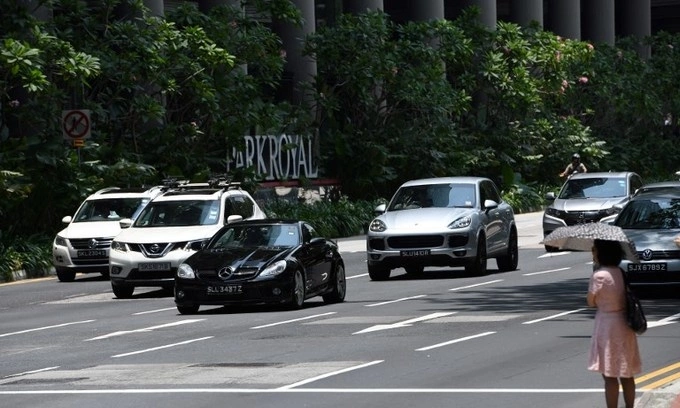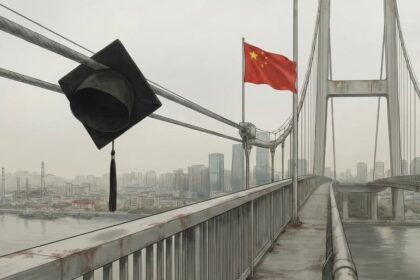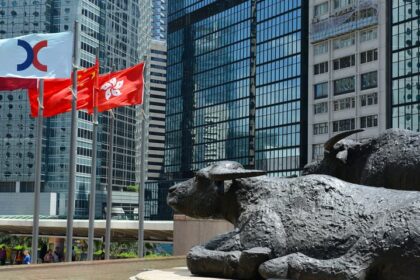Singapore: The World’s Most Expensive City to Own a Car
Singapore has once again claimed the title of the world’s most expensive city for car ownership, according to the Global Wealth and Lifestyle Report 2024 by Swiss bank Julius Baer. The city-state’s car prices are roughly 2.5 times higher than the global average, making it not just the priciest city in Southeast Asia for buying a car, but also the most expensive worldwide. This finding is part of a broader analysis of luxury living costs across 25 major cities, and it highlights the unique economic and regulatory factors that drive Singapore’s extraordinary car prices.
- Singapore: The World’s Most Expensive City to Own a Car
- What Makes Car Ownership So Expensive in Singapore?
- Comparing Car Prices Across Southeast Asia
- Why Is Singapore So Focused on Limiting Car Ownership?
- How Do Car Prices Affect the Broader Cost of Living?
- Regional Trends: The Rise of Southeast Asia’s Wealthy Cities
- How Do Currency Fluctuations Impact Car Prices?
- Expert Insights: Why Singapore’s Model Is Unlikely to Change
- What Does the Future Hold for Car Buyers in Singapore?
- In Summary
For the third consecutive year, Singapore has topped the Julius Baer rankings for luxury living, beating out other global hubs like London, Hong Kong, and Monaco. While the city is renowned for its high-end real estate, private education, and healthcare, it is the cost of car ownership that truly sets it apart from the rest of the world.
What Makes Car Ownership So Expensive in Singapore?
To understand why cars are so costly in Singapore, it’s essential to look at the city’s unique regulatory environment. The government has long implemented strict measures to control the number of vehicles on its limited road space. The most significant of these is the Certificate of Entitlement (COE) system, which requires anyone wishing to own a car to bid for a certificate that grants the right to own and use a vehicle for 10 years.
The COE system is designed to limit the total number of cars on the road, thereby reducing congestion and pollution. However, it also adds a massive premium to the cost of every vehicle. In recent years, COE prices have soared, sometimes exceeding the price of the car itself. For example, in 2024, the COE for a standard car can cost upwards of S$100,000 (about US$74,000), on top of the actual price of the vehicle.
Other factors contributing to high car prices include import taxes, registration fees, and additional levies on luxury vehicles. All these costs combine to make car ownership a luxury reserved for the wealthy in Singapore.
How Does the COE System Work?
The Certificate of Entitlement is a quota-based system introduced in 1990. Every month, the government releases a limited number of COEs, which are then auctioned to the highest bidders. The price fluctuates based on demand, and during periods of economic growth or increased demand for cars, COE prices can skyrocket.
Once a COE is obtained, it is valid for 10 years. At the end of this period, car owners must either scrap their vehicle or pay for a new COE to continue using it. This system ensures a constant turnover of vehicles and discourages long-term car ownership, further limiting the number of cars on the road.
Additional Taxes and Fees
In addition to the COE, car buyers in Singapore face a range of other costs:
- Import Duties: All imported cars are subject to a customs duty of 20% of the Open Market Value (OMV) of the vehicle.
- Registration Fees: The Additional Registration Fee (ARF) is a tiered tax based on the OMV, with higher-value cars facing steeper rates.
- Excise Taxes: Luxury and high-emission vehicles incur further taxes as part of Singapore’s efforts to promote environmental sustainability.
These combined costs mean that even a modest family car can cost several times more in Singapore than in neighboring countries or other global cities.
Comparing Car Prices Across Southeast Asia
While Singapore stands out for its sky-high car prices, other Southeast Asian cities also feature in the Julius Baer report’s rankings for luxury living costs. Bangkok, for example, has surged to 11th place globally, driven by rising prices for luxury goods such as high-end automobiles and women’s footwear. However, even in Bangkok, car prices are nowhere near the levels seen in Singapore.
In contrast, cities like Manila and Jakarta remain far more affordable for car buyers, with fewer regulatory barriers and lower taxes. This regional disparity underscores the unique position Singapore holds in the global luxury market.
According to the Julius Baer report, the Asia-Pacific region is home to three of the world’s top six most expensive cities: Singapore (1st), Hong Kong (3rd), and Shanghai (6th). However, only Singapore consistently ranks at the top for car prices, thanks to its distinctive regulatory approach.
Why Is Singapore So Focused on Limiting Car Ownership?
Singapore’s approach to car ownership is rooted in its geography and urban planning philosophy. As a small island nation with limited land, Singapore faces unique challenges in managing traffic congestion and air quality. The government’s policies are designed to prioritize public transport, reduce pollution, and ensure that the city remains livable for its residents.
Public transportation in Singapore is among the best in the world, with an extensive network of trains, buses, and taxis. The high cost of car ownership is intended to encourage residents to use these alternatives, reducing the strain on the city’s roads and minimizing environmental impact.
Economic and Social Implications
The high cost of car ownership has significant social and economic implications. On one hand, it ensures that only those with substantial financial means can afford to own a car, reinforcing Singapore’s reputation as a playground for the wealthy. On the other hand, it helps maintain the city’s efficient transport system and high quality of life.
For many Singaporeans, car ownership is seen as a status symbol, reflecting both financial success and social standing. The exclusivity of car ownership has also fueled demand for luxury vehicles, with brands like Mercedes-Benz, BMW, and Porsche enjoying strong sales despite the high costs.
How Do Car Prices Affect the Broader Cost of Living?
Car prices are just one component of Singapore’s overall high cost of living. The Julius Baer report analyzes a basket of goods and services representative of “living well,” including private education, real estate, healthcare, and luxury goods. In nearly every category, Singapore ranks among the most expensive cities globally.
For example, private education costs in Singapore increased by almost 14% in the past year, while prices for luxury handbags and shoes rose by 10%. Hotel suite prices also climbed by over 10%, reflecting strong demand from wealthy residents and visitors.
Despite these rising costs, Singapore continues to attract high-net-worth individuals and global businesses, drawn by its political stability, safety, and world-class infrastructure. The city’s strong currency and robust economy further reinforce its position as a global luxury hub.
Regional Trends: The Rise of Southeast Asia’s Wealthy Cities
The Julius Baer report highlights a broader trend in Southeast Asia: the rapid growth of high-net-worth individuals (HNWIs) and the increasing prominence of cities like Bangkok and Hong Kong in the global luxury market. In 2024, the number of HNWIs in Asia grew by 5%, with China and India driving much of this expansion.
Bangkok’s rise in the rankings reflects changing consumer preferences, with affluent individuals prioritizing experiences such as travel, health, and fine dining over traditional luxury goods. While car prices in Bangkok are high by regional standards, they remain far below those in Singapore.
Hong Kong, meanwhile, remains a key financial hub, attracting wealthy individuals with its low taxes and investment-friendly policies. However, even in Hong Kong, car prices are not as prohibitive as in Singapore, where regulatory measures are uniquely stringent.
How Do Currency Fluctuations Impact Car Prices?
Currency movements play a significant role in the cost of living rankings. The Julius Baer report notes that the strength of the Singapore dollar has contributed to the city’s high prices in US dollar terms. In contrast, cities like Tokyo have become more affordable for foreign buyers due to the weakening Japanese yen.
These fluctuations can have a dramatic impact on the perceived cost of luxury goods and services, including cars. However, in Singapore’s case, the primary driver of high car prices remains domestic policy rather than currency effects.
Expert Insights: Why Singapore’s Model Is Unlikely to Change
Experts agree that Singapore’s approach to car ownership is unlikely to change in the near future. The government’s commitment to sustainable urban development and efficient public transport means that restrictive policies on car ownership will remain in place.
Christian Gattiker, head of research at Julius Baer, explains:
“Singapore’s status as an important regional and global hub is due to positive factors like stable politics, good health care, low crime, and excellent public transport. The city-state is the world’s most expensive place to own a car, due to rules requiring owners to buy a certificate of entitlement.”
This sentiment is echoed by local policymakers, who emphasize the importance of managing congestion and maintaining a high quality of life for all residents.
What Does the Future Hold for Car Buyers in Singapore?
Looking ahead, car prices in Singapore are expected to remain high, with COE prices likely to fluctuate based on demand and economic conditions. The government may introduce further measures to promote electric vehicles and reduce emissions, but the fundamental approach to limiting car ownership is unlikely to change.
For those considering buying a car in Singapore, the message is clear: be prepared to pay a premium. For many residents, the city’s world-class public transport system offers a more practical and affordable alternative.
In Summary
- Singapore is the most expensive city in the world to buy and own a car, with prices about 2.5 times the global average, according to Julius Baer’s 2024 report.
- The high cost is driven by the Certificate of Entitlement (COE) system, import taxes, registration fees, and other levies.
- Car ownership in Singapore is a status symbol and a luxury reserved for the wealthy.
- Other Southeast Asian cities like Bangkok and Hong Kong are also expensive, but none match Singapore’s car prices.
- Singapore’s policies are designed to manage congestion, promote public transport, and maintain a high quality of life.
- Currency fluctuations affect global rankings, but Singapore’s domestic policies are the main reason for its high car prices.
- Experts expect Singapore’s approach to car ownership to remain unchanged, keeping prices high for the foreseeable future.












